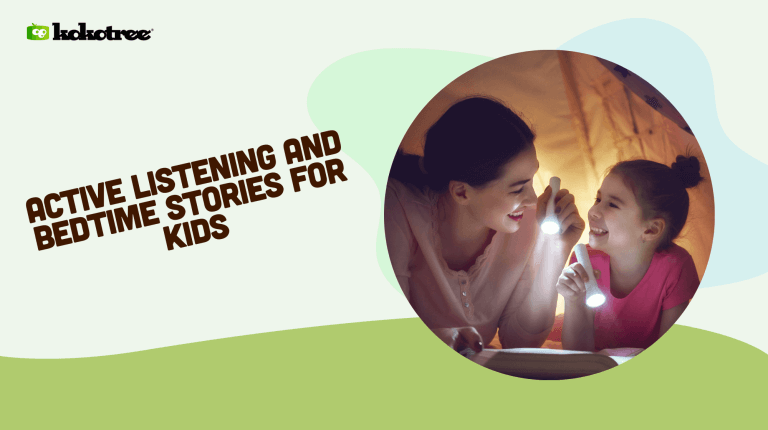

Active Listening and bedtime stories are powerful tools that can significantly impact a child’s cognitive and emotional development. As parents of toddlers and preschoolers, understanding the importance of these tools can help foster a love for reading and enhance communication skills in your child.
Active listening, during reading bedtime stories to preschoolers and toddlers, refers to the attentive and focused process of truly hearing, understanding and responding to what the child says or feels. It involves fully concentrating on the child’s reactions, interpreting their emotions, and providing appropriate feedback during the storytelling session. This approach not only enhances the story experience but also fosters a deeper bond between the reader and the child.
Practicing active listening while reading bedtime stories involves several steps:
By incorporating these steps, parents and caregivers can create a more interactive and enriching storytelling experience for young listeners.
From my years of experience and research, I’ve observed that the formative years of preschoolers and toddlers are crucial for cognitive and emotional development. Active listening plays a pivotal role during this phase.
At this age, children are rapidly absorbing information, forming opinions, and understanding their emotions. By actively listening to them, we validate their feelings, thoughts, and curiosities. It tells them their voice matters, fostering a sense of self-worth and confidence. Moreover, it lays the foundation for effective communication skills they’ll use throughout their lives.
Bedtime storytime is a cherished ritual for many families, and integrating active listening can amplify its benefits. Here’s why:
Discover the cognitive benefits of bedtime stories here.
Absolutely, it does. Young children, contrary to some beliefs, are incredibly perceptive. They can discern genuine attention from mere presence. When we actively listen to them, they feel seen and heard. This validation can increase trust, better communication, and a stronger bond. Over time, children who are actively listened to tend to express themselves more, ask more questions, and show a higher level of understanding and empathy.
It’s essential to remember that every child is unique. If you find that your child doesn’t immediately respond to active listening, don’t be disheartened. Here are a few things to consider:
In my experience, even if the immediate results aren’t evident, the long-term benefits of active listening are profound and well worth the effort.



